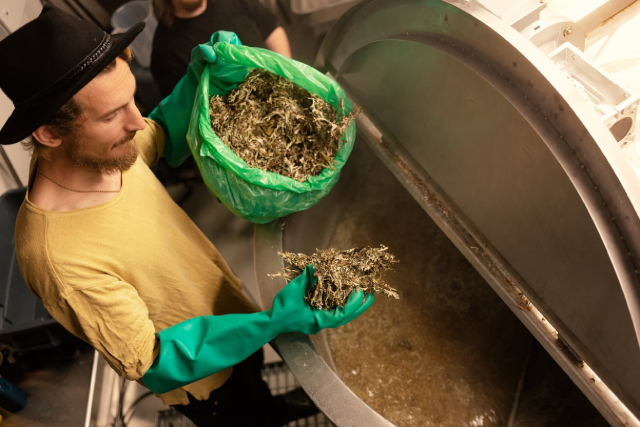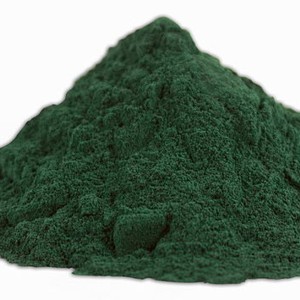Climate change is already triggering a mega-shift in the foods we can grow, and where we can grow them. But there will also be a growing demand for food – particularly protein – as time goes on. And the idea of eating algae has surfaced again…
 Certain seaweeds are already part of the traditional diets of many seaside
Certain seaweeds are already part of the traditional diets of many seaside
cultures. But the idea of harvestng – let alone cultivating – algae
remains way out on the fringes of mass acceptability…
The last time we talked about eating microbiota such as algae, and other sea foods such as seaweed, all involved agreed that adopting such abundant sources of nutritionally-dense produce will be in-evitable.
Has the time come?
But it was also agreed that the time – about 10 years back – had not yet come to make serious, large-scale commitments to develop such food sources. Folks just weren’t ready to accept those ‘fringe’ foods as part of their daily diets.
There was a solid minority constituency of health and physical fitness adherents who were already sold on concentrated protein compounds and ‘biotics’. But there weren’t nearly enough of them to sustain any kind of major production effort.
Now, researchers at the University of Burmingham (UK) are renewing calls from the learned commun-ity to take a serious look at algae (see photo, top of page) as a superfood that could nourish the world. And do so sustainably.
Serious potential…
One strain of freshwater alga has particularly high potential as a candidate for development.
Chlorella vulgaris is a freshwater microalga rich in protein, lipids, carbohydrates, vitamins, and min-erals. Unlike conventional agriculture, which requires extensive land and water resources, it can be cultivated sustainably with minimal environmental footprint,” the researchrs say. “[It] can be incor-porated into food products to enhance their nutritional value. [And] with its antioxidant properties, immune support, and detoxifying effects, Chlorella is [also] promising nutraceutical ingredient.”
In fact, C. vulgaris is already a prominent player in the still-small but growing supplements sector.
The key to popularizing it, and making it available sustainably in commercial quantities, will pivot on development of large scale cultivation and processing facilties.
The takeaway…
According to an abstract of the study report: “Chlorella boasts high levels of protein (43-58 percent dry weight), lipids (5-58 percent), carbohydrates (12-55 percent), and essential vitamins and minerals such as vitamin B, calcium, and magnesium.” It’s also been shown to possess anti-tumour properties, as well as potential for preventing Alzheimer’s disease, and help fight depression.
Study report co-author Dr. Helen Onyeaka notes, “Beyond its nutritional value, C. vulgaris offers sig-nificant environmental advantages, helping to capture carbon dioxide and cleanse wastewater, aligning with global sustainability goals.”
My take
Which brings us back to the original issue that blocked the widespread adoption of aquatic-source foods during enthusiasts’ previous attempts: consumer acceptability.
Whether ‘now is its time’ remains to be seen. But I suspect that mass preferences and awareness still have a ways to go before algae can gain enough traction to hit it’s stride…
~ Maggie J.

